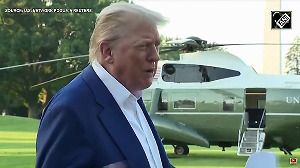A carbon tax may be a better approach in lowering greenhouse gas emissions than the caps and tradable permits legislation being considered by many American lawmakers, according to a new study.
Tax on carbon emissions would provide businesses and industries with incentive to invest in more efficient technologies, which actually reduce carbon dioxide output and achieves the policy objective of lowering the greenhouse gas emissions, the study by American Consumer Institute says.
Carbon taxes will not create the price volatility and administrative problems associated with cap and trade and will be a more effective way to reduce emissions and provide a more powerful incentive to develop new, climate-friendly technologies, the study for ACI by Robert J Shapiro, US Under-Secretary of Commerce in the Clinton regime, says.
The study -- 'Addressing the Risks of Climate Change: The Environmental Effectiveness and Economic Efficiency of Emissions Caps and Tradable Permits, Compared to Carbon Taxes' -- says carbon taxes cannot be manipulated by the markets and would offer the most stable and transparent system for consumers and industry.
The European Emissions Trading Scheme, it says, shows the ineffectiveness of cap-and-trade schemes. In fact, European carbon dioxide emissions actually increased in 2005, and the EU will miss its Kyoto-targeted reductions by more than 75 per cent, it says.
"We have reached a critical point in the policy debate around climate change and now is the time to examine the best legislative solutions," ACI president Stephen Pociask said.
"A carbon tax deserves equal consideration on Capitol Hill. As Shapiro's study highlights, there are serious drawbacks to cap-and-trade schemes, which could harm consumers in the long run," he added.
According to Pociask, while the findings of the study look at both possible approaches, it concludes that carbon taxes are a more effective way to lower emissions than previously thought.
"Unlike the commonly sited 'cap-and-trade' schemes, carbon taxes force businesses and the industry to make a choice: reduce carbon consumption and really improve efficiency, or pay a high price," said Pociask.





